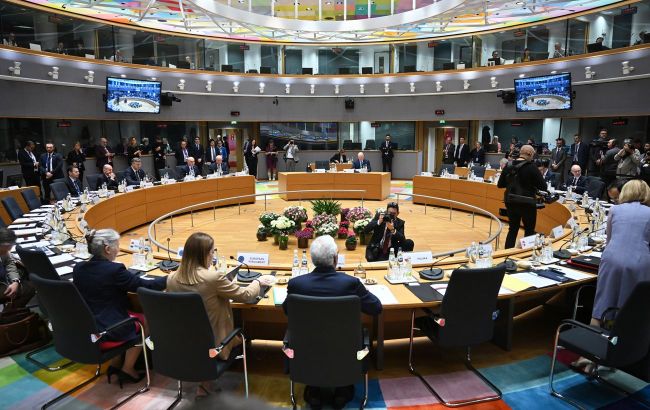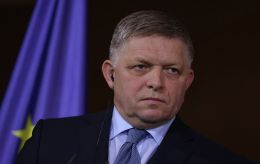EU considers seizing Russian assets to close €60 billion Ukraine funding gap
 Photo: The EU will unveil plans to use Russia's frozen assets within two months (Getty Images)
Photo: The EU will unveil plans to use Russia's frozen assets within two months (Getty Images)
The fate of frozen Russian assets remains uncertain. Brussels is still debating whether they can be fully confiscated or if only the profits should be directed to aid Ukraine, Euractiv reports.
EU countries are eager to use the blocked funds to support Ukraine, but they remain divided on how to do so, particularly on whether they can or should use the assets in full.
Although EU and G7 countries agreed to use profits from asset sales to support military efforts and meet Ukraine's financial needs, Brussels is now assessing whether governments are ready to pursue confiscation, and if so, how far they are willing to go.
EU foreign ministers on Saturday discussed "further options for the use of revenues stemming from Russian immobilised sovereign assets." These renewed efforts are part of broader attempts to increase pressure on Russia and strengthen Ukraine's position in future peace talks.
"The seizure discussion is directly tied with our budgetary discussion - we're looking at a funding gap of around €60 billion missing to support Ukraine (in the long-term -ed.)," one EU official said.
Is full confiscation legal?
Most EU countries stress the lack of a clear legal precedent for such action. They have asked the European Commission to provide a formal assessment. Politically, EU leaders have committed that "in compliance with EU law, Russia's assets should remain immobilised until Russia ceases its war of aggression against Ukraine and compensates it for the damage caused by this war."
This policy remains in place unless the EU decides to change its position.
Options under consideration
In addition to full confiscation and utilizing unforeseen profits under current rules, ideas are emerging to find workarounds that allow assets to generate more income. The European Commission is expected to present a set of options within two months, backed by legal assessments.
One proposal would transfer assets to a special purpose vehicle (SPV) managed by Brussels. Several EU countries and non-EU partners are expected to support this new fund. It could allow for riskier investments capable of generating higher returns for Ukraine.
Transferring funds to a body that could operate without unanimity rules would prevent Hungary, which is considered most likely to veto future sanctions on Russia, from returning assets to Moscow.
EU High Representative for Foreign Affairs Kaja Kallas recently emphasized that Russia will not regain frozen assets totaling more than €210 billion until it compensates Ukraine for war damages.
The Guardian also indicates that the EU is preparing its 19th sanctions package along with new measures on frozen Russian assets.
As a reminder, Politico notes that the European Commission is developing a mechanism that will enable nearly €200 billion in frozen Russian assets to be transferred to Ukraine for post-war reconstruction.

